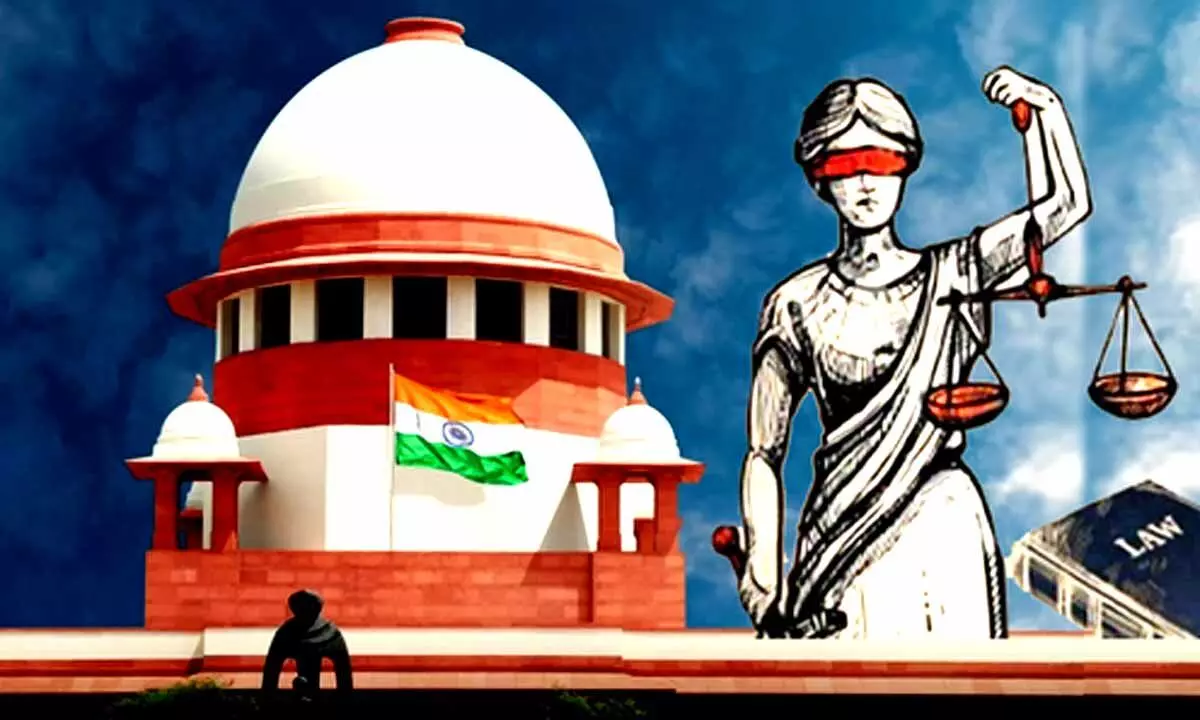Live
- Former Speaker Tammineni’s clout on the wane
- Attack on media: Take action against Mohan Babu, demand journalists
- More sports equipment promised at Central Park
- Mohan Babu’s attack on journalists inhumane act
- West Quay-6 of VPA to get revamped
- Rajaiah demands govt to introduce SC categorisation Bill in Assembly
- Make all arrangements for smooth conduct of Group-2 exams
- CP congratulates chess champs
- Stage set for children’s science exhibition
- ‘Generation Green’ initiative to drive e-waste awareness
Just In
SC orders increase in compensation in cases of death, disablement of persons engaged in manual scavenging

Supreme Court of India
The Supreme Court on Friday ordered enhancement of compensation to be paid in cases of death and disablement of persons engaged in manual scavenging work.
New Delhi: The Supreme Court on Friday ordered enhancement of compensation to be paid in cases of death and disablement of persons engaged in manual scavenging work.
A bench of Justices S. Ravindra Bhat and Aravind Kumar ordered that Rs 30 lakh should be paid to the family members of those who died cleaning sewers or septic tanks, adding that not less than Rs 20 lakh should be paid in cases of complete disablement.
Saying that not not less than Rs 10 lakh should be paid in cases of partial disablement, the bench stressed that there is a need for complete eradication of manual scavenging.
It passed detailed guidelines on a public interest litigation, filed by Dr. Balram Singh, the petitioner-in-person, which had sought directions for implementation of the Employment of Manual Scavengers and Construction of Dry Latrines (Prohibition) Act, 1993 and the Prohibition of Employment as Manual Scavengers and their Rehabilitation Act, 2013.
The apex court clarified that its judgment will not preclude High Courts across the country to monitor the implementation of social welfare legislations enacted for manual scavengers.
In 2019, the SC had said that "the manual scavengers are subjected to inhuman working conditions by being exposed to diseased sewages and pits; wherein the said scavengers are forced to work without any protective gear. The aforementioned unsafe working conditions result in either the manual scavengers contracting chronic or acute diseases or suffering injuries, for which no medical-care facilities are in place; or may result in the unfateful and untimely demise of the manual scavengers, wherein in the majority of the cases even compensation by the concerned state is not awarded to the next of kin".

© 2024 Hyderabad Media House Limited/The Hans India. All rights reserved. Powered by hocalwire.com






